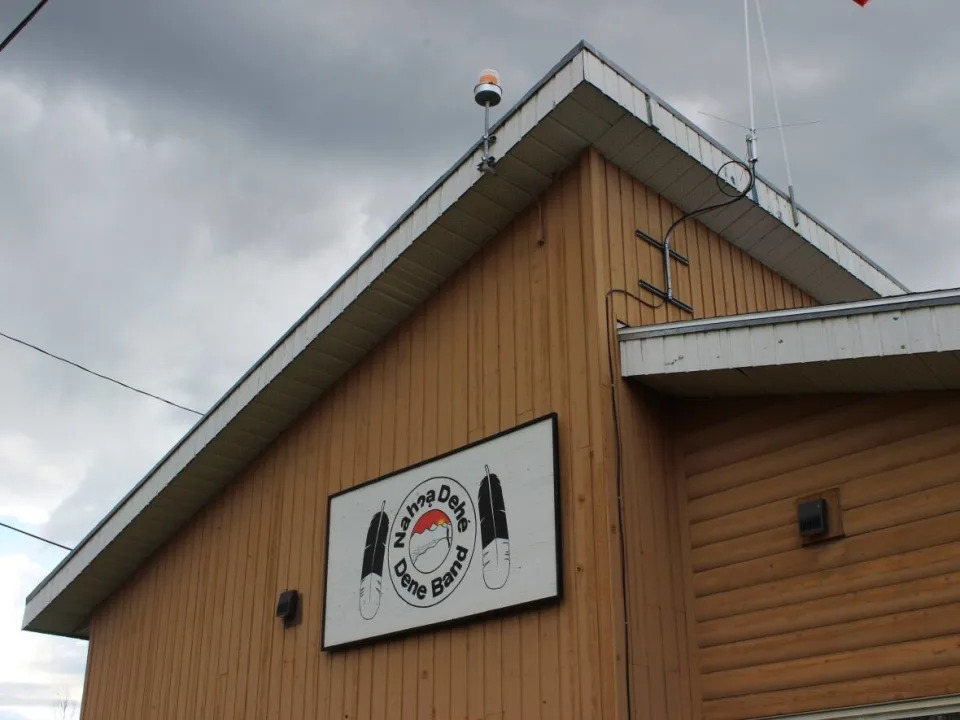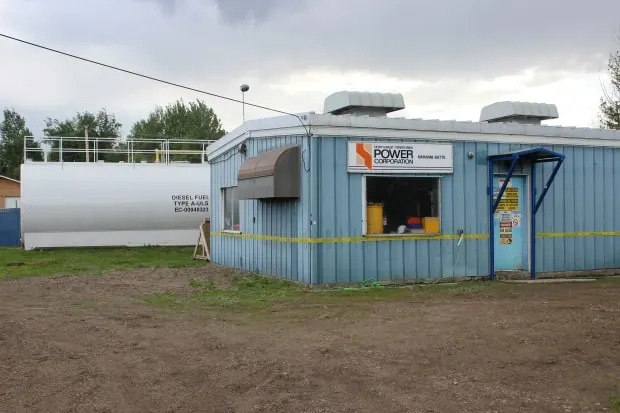Mon, February 6, 2023

Nahɂą Dehé Dene Band Office in Nahanni Butte on June 11, 2022. The community is investigating the potential for geothermal district heating. (Liny Lamberink/CBC - image credit)
The small First Nation in Nahanni Butte, N.W.T., is exploring the potential for a district heating system powered by geothermal energy, thanks to studies that show high potential in the area.
Jason Collard is the CEO of Gonezu Energy. The company has been working with the Nahɂą Dehé Dene since 2020, with support from the Dehcho First Nations. The first phase was securing funding through the National Research Council of Canada Industrial Research Assistance Program.
"The role that Gonezu energy is playing in this is to provide information to the Indigenous governments so that they are aware of the resources on their land," said Collard.
He said then those governments could make informed decisions if they decide to tap the resource.
"Based on previous studies there appears to be a high degree of geothermal favourability," said Collard of Nahanni Butte.
For the next phase, the group is working with Terrapin Geothermics Inc. to analyze and confirm the geothermal potential, and to design a district heating system.

Liny Lamberink/CBC
Geothermal energy in this context refers to the high temperatures found deep underground which can be tapped into directly for heat, or converted into energy.
Terrapin discovered that the Government of Northwest Territories was decommissioning and abandoning the oil wells in the Cameron Hills area, which lies southeast of Nahanni Butte. Using these wells would give the group an opportunity to test the geothermal potential.
"In the decommissioning of the wells they'll be going down to a certain depths that will allow them to do temperature logs and gamma logs that will paint a more accurate picture of the geothermal resource in the region," said Collard.
They plan to add temperature and gamma tools to the other logging activities that will be carried out before plugging and abandoning the wells.
'We can still do our part'
Kele Antoine is the chief of Łı́ı́dlı̨ı̨ Kų́ę́ First Nation (LKFN) which is a part of the Dehcho First Nations. He said he supports his neighbouring community's plan.
"If we are sitting on the largest geothermal anomaly in Canada, we should at least be trying to see what we can do with it," said Antoine.
He said once that data is compiled, they'll decide on whether to proceed to a feasibility study. One of the biggest concerns is the cost of introducing geothermal energy to the region.
But Antoine said cost is a small-picture concern.
It's not just about powering a small community Antoine said, it's about "the opportunities that could come, the industry that can be attracted to something like this."
He said the more they learn about renewable energy and energy efficiency the more impact they can have on the environment, and climate change
"We can still do our part," he said.
Collard said the research study should take about a year to complete but the results of the study will benefit the regional Indigenous and community governments, and Indigenous community members in the region. Once that is done the findings of the research will be open-source and accessible to everyone.
No comments:
Post a Comment